Tag: Dementia Care
Articles dealing with caregiver tips for patients with various types of dementia.
Articles dealing with caregiver tips for patients with various types of dementia.
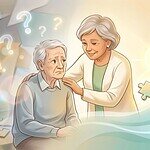
Understanding the differences between confusion, delirium, and depression can be challenging for caregivers. This comprehensive guide provides practical, evidence-based methods to help you recognize what your loved one is experiencing, when to seek professional help, and how to provide the best support—even when cognitive decline is present.

When nursing home residents with dementia face hospitalization, families often discover critical gaps in advance care planning. Studies show most dementia patients lack DNR orders, and hospice referrals remain rare despite distressing hospital experiences. Learn how proactive planning—including palliative care, hospice eligibility, and proper DNR documentation—can protect your loved one's comfort and dignity.
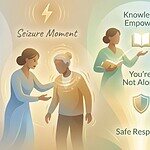
When someone you love has dementia, seizures may become part of their journey. Learn which types of dementia increase seizure risk, how to recognize and respond to seizures safely, when to call for emergency help, and which medications may affect seizure risk. This compassionate guide empowers caregivers with knowledge and confidence.

A heartbreaking Facebook post reveals the devastating reality when families don't plan ahead for long-term care. Learn how Medicaid Asset Protection Trusts and working with life transition coaches years in advance can protect your home, savings, and dignity—and why the five-year lookback means you must act now.

Geri-Gadgets® are safe, sensory-rich fidget tools designed to help people with dementia, neurodiverse individuals, and anyone who benefits from fidgeting. These colorful, non-toxic products improve mood, reduce anxiety, encourage engagement, and support physical and cognitive health. Learn how these innovative tools can transform care.

Recent University of Michigan research found that benzodiazepines and antipsychotics commonly prescribed in hospice care may significantly increase mortality risk for people with dementia. This article explores these findings and provides essential advocacy guidance for families, caregivers, and hospice professionals.

Caring for a loved one with dementia is a challenging journey that can take a toll on caregivers' physical and emotional health. This comprehensive guide offers practical strategies for dementia caregivers to prioritize self-care, manage stress, and maintain their well-being while providing compassionate care for their loved ones.

Discover essential strategies for managing diabetes in loved ones with dementia. This comprehensive guide covers blood sugar monitoring, medication administration, diet management, and recognizing emergencies, empowering caregivers to provide optimal care.

Deciding when to involve hospice care for a loved one with dementia can be challenging. This comprehensive guide helps non-healthcare professionals recognize the signs that indicate it's time to consider hospice, understand the benefits of hospice care, and navigate the decision-making process with compassion and informed judgment.

Mild cognitive impairment (MCI) is a condition characterized by cognitive decline that is more significant than expected for an individual of age but not severe enough to interfere significantly with daily life. This article explores MCI's symptoms, diagnosis, and potential progression to dementia, offering insights into prevention and management strategies.
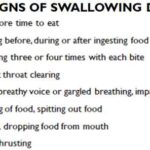
Learn about swallowing problems in dementia patients, including symptoms, risks, and management strategies for caregivers and healthcare professionals.
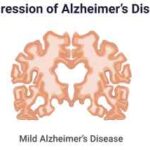
Delve into the complexities of Alzheimer's disease, the most common form of dementia. This article examines its causes, symptoms, diagnosis, and treatment options while discussing the challenges patients and caregivers face. Learn about ongoing research and potential breakthroughs in the fight against this devastating neurological disorder.

Delve into the world of dementia with our comprehensive guide. Understand its progression, learn about risk factors and prevention, explore diagnosis and treatment options, and discover coping strategies for cognitive decline. Empower yourself with the knowledge to navigate the challenges of dementia.
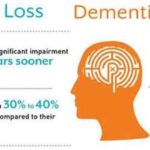
Recent studies have revealed a surprising link between hearing loss and dementia. This article examines the scientific basis of this connection, investigating how hearing impairment may contribute to cognitive decline. Discover practical steps for maintaining hearing health and potentially lowering the risk of dementia, along with cutting-edge research in this critical area of study.

Discover how hospitals are crucial in helping families place dementia patients in appropriate care settings. This article explores various care options, discusses challenges in placement decisions, and provides evidence-based strategies for effective hospital-based care coordination to ensure the best possible outcomes for patients and their loved ones.

Discover the theory of retrogenesis and its profound impact on dementia care. This comprehensive guide helps nurses, caregivers, and families understand how dementia reverses developmental stages, offering practical insights for tailored care strategies. Learn to navigate the challenges of dementia with empathy and effectiveness.
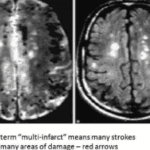
Multi-infarct dementia is a challenging condition that affects not only patients but also their families and caregivers. This comprehensive guide explores the disease's progression, common symptoms, and effective care strategies. Learn what to expect and how to provide the best support for your loved one from diagnosis through end-of-life care.

Posterior cortical atrophy (PCA), also known as Benson's syndrome, is a rare form of dementia affecting visual processing. This article explores PCA's symptoms, progression, and impact on daily life. Learn how to provide effective care, recognize when to seek help, and navigate the challenges of this complex condition.

Dementia is a challenging journey for both patients and caregivers. This comprehensive guide explores the stages of dementia progression and offers practical advice on care strategies, treatment options, and support resources. Learn how to navigate the changes and provide compassionate care throughout the journey.
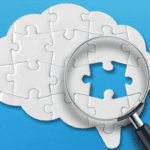
This article delves into Utilization Behavior in dementia, offering practical advice for families and caregivers to create a safe environment and mitigate the challenges associated with this condition.
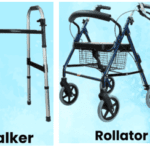
Discover practical and compassionate strategies for encouraging a loved one with dementia to use a cane, walker, or wheelchair. Enhance their safety and quality of life with these tips.
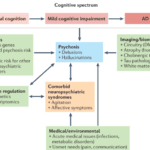
This guide provides hospice nurses, caregivers, and family members with essential information on dementia-induced psychosis, including its signs, symptoms, differentiation from other conditions, and effective management strategies.

This article provides practical tips and strategies for caregivers and family members to prevent dementia patients from removing their oxygen nasal cannula. Ensuring continuous oxygen use is essential for their health and well-being.
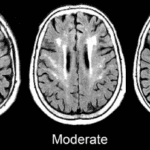
Caring for someone with Chronic Small Vessel Disease (CSVD) can be challenging, but with the proper knowledge and strategies, you can make a significant difference. This guide offers practical advice on creating a supportive environment, managing symptoms, and improving the quality of life for your loved one with CSVD.